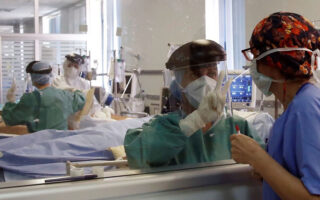The dexterities of the future
Which sectors, jobs and skills stand to thrive within a highly technological environment

In the very near future, humans and automatic machines will be employed for the same number of hours. At the same time, workers in assembly factories will be at risk of losing their jobs, as according to “The Future of Jobs Report” by the Hellenic Federation of Enterprises (SEV), the rise of automatic machinery will result in the global loss of 85 million jobs, mostly menial posts and those that involve repeating tasks, such as accountants.
The report points out that 14% of workers in the European Union are employed in posts threatened by automatic machinery, 40% are in posts that will be significantly transformed, and 34% will undergo some changes in that context.
As the Adecco recruitment group points out, the pandemic has also forced enterprises not only to increase remote working but also to accelerate digital and automatic operations.
In this framework, the report argues that the skills that will be in the greatest demand by 2025 will be related to data science and cloud computing – i.e. jobs such as data architects, software experts and data scientists.
Other key domains are big data science, artificial intelligence and machine learning, digital marketing and strategy, automatic procedures, business development, digital transformation, information security (including cybersecurity), software and application development (UX/UI, blockchain programming etc) and the internet of things.
Besides the technical skills, there are some social dexterities, known as “soft skills,” that are in high demand: problem solving, self-management and group cooperation.
It is obvious that technologies transform the way people work as well as the objective of several professions, with some of them becoming automatic while others – that may still be unknown – enter labor reality. The main challenge for businesses today, says Adecco’s Cluster Head for Greece, Romania and Bulgaria Konstantinos Mylonas, “is the constant changes to the external technological, economic political and social environment they face.”





